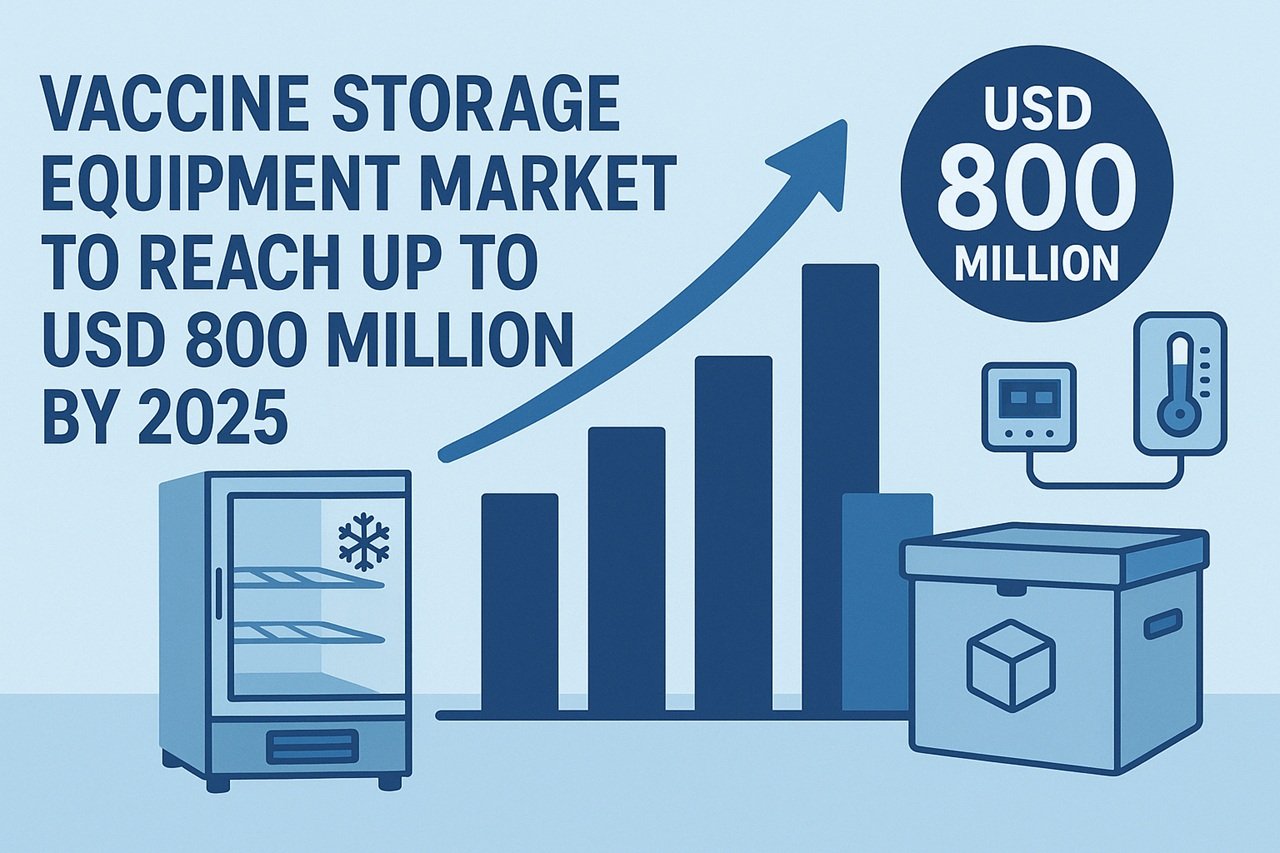Vaccine Storage Equipment Market to Reach up to USD 800 Million by 2025
The global vaccine storage equipment market is projected to reach between USD 450 million and USD 800 million in 2025, supported by the demand for mRNA vaccine storage and increased efforts to expand immunization access in low-resource regions. A new report by ResearchAndMarkets.com outlines market trends through 2030, identifying Asia and Africa as key growth areas due to expanding immunization programs and adoption of solar-powered technologies.
Technology developments, including solar-powered refrigerators and IoT-enabled monitoring systems, are enhancing vaccine storage reliability. The market is expected to grow at a compound annual growth rate (CAGR) of 5.1% to 8.7% through 2030. Key application areas include hospitals, clinics, biopharma companies, vaccination centers, and government health departments.
Hospitals and clinics are forecasted to grow 5.0%–8.5%, driven by routine and emergency vaccination needs, while biopharma companies are projected to see 5.2%–8.7% growth, emphasizing real-time monitoring technologies. Government health departments are expected to experience 5.3%–8.8% growth, particularly through solar-powered solutions for rural coverage.
In terms of equipment type, solar-powered refrigerators are projected to grow 5.4%–8.9%, driven by demand in off-grid regions. Deep freezers for mRNA vaccines are expected to grow 5.3%–8.8%, with development focused on compact, high-capacity models. Ice-lined refrigerators, cold boxes, and vaccine carriers also show consistent growth trends.
Regional analysis highlights North America’s strong position, led by the U.S. with its healthcare infrastructure. Europe sees investment in cold chain logistics, particularly in Germany, France, and the UK. Asia Pacific is led by India and China, where solar-powered units are increasingly adopted. African countries are prioritizing solar solutions to address electricity access challenges.
Companies active in the market include Thermo Fisher Scientific, Azenta, Eppendorf, Cardinal Health, PHC Holdings Corporation, ARCTIKO, Standex International Corporation, Blue Star Limited, Dulas, Helmer Scientific, EVERMED, Philipp Kirsch GmbH, Labcold Limited, Haier Biomedical, and MVE Biological Solutions.
Opportunities are driven by the WHO's Immunization Agenda 2030 and increased mRNA vaccine development. However, high equipment costs, regulatory compliance requirements, and electricity access limitations remain key challenges.
